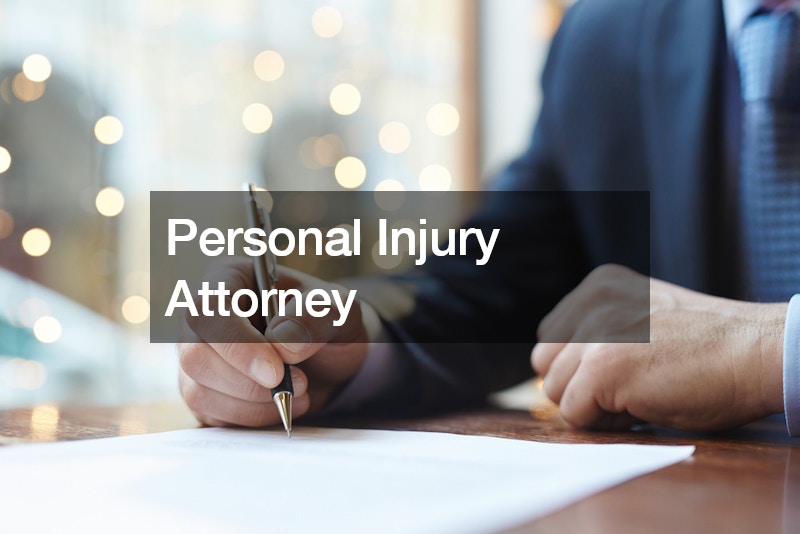Recovering from a car accident can be a challenging and overwhelming experience, especially for parents who need to juggle their recovery with their parenting responsibilities. Enlisting the help of professionals can provide the necessary support and ensure a smoother recovery process. Here are six professionals a parent may consider enlisting during this time.

1. Medical Doctor
Recovering from a car accident can be a complex and challenging process, and a doctor plays a pivotal role in guiding a patient through this journey. From immediate post-accident care to long-term rehabilitation, a doctor’s expertise is crucial in ensuring a comprehensive and effective recovery.
Immediate Post-Accident Care
The first step in recovery begins with immediate post-accident care. Often, a patient will be taken to an emergency room where a doctor will perform a thorough examination to assess the extent of injuries. This may include physical examinations, imaging tests such as X-rays, CT scans, or MRIs, and other diagnostic procedures. The doctor will prioritize treating life-threatening injuries first, ensuring that the patient is stabilized. This might involve surgeries, setting broken bones, or addressing internal injuries.
Pain Management
Pain management is a critical aspect of recovery from a car accident. A doctor will evaluate the patient’s pain levels and prescribe appropriate medications to manage discomfort. This may include over-the-counter pain relievers, prescription pain medications, or muscle relaxants. In some cases, they may recommend nerve blocks or epidural injections for severe pain. Effective pain management is essential not only for comfort but also to facilitate participation in physical therapy and other rehabilitation activities for bone repair.
Developing a Treatment Plan
Once the immediate injuries are addressed, the doctor will develop a personalized treatment plan tailored to the patient’s specific needs. This plan may involve referrals to specialists such as orthopedic surgeons, neurologists, or physical therapists. The treatment plan will outline the steps required for recovery, including medication, physical therapy, and follow-up appointments. It ensures that all aspects of the patient’s health are monitored and treated appropriately.
Physical Therapy and Rehabilitation
Physical therapy is often a cornerstone of recovery for those injured in car accidents. A doctor will refer the patient to a physical therapist who will create a rehabilitation program designed to restore strength, flexibility, and function. The doctor will work closely with the physical therapist to monitor progress and adjust the treatment plan as needed. This collaborative approach helps in addressing any complications that arise and ensures that the patient regains as much mobility and function as possible, like carpal tunnel treatment.
Emotional and Psychological Support
The psychological impact of a car accident can be significant. Doctors recognize this and often recommend counseling or therapy to help patients cope with trauma, anxiety, or depression resulting from the accident. Addressing the mental health aspect is crucial for holistic recovery, as emotional well-being significantly influences physical healing.
Long-Term Monitoring and Follow-Up
Recovery from a car accident can take weeks, months, or even years, depending on the severity of the injuries. Doctors provide long-term monitoring and follow-up care to ensure that recovery is on track. They will schedule regular check-ups to assess healing, adjust treatment plans, and address any ongoing issues. This continuous care helps in preventing complications and promotes sustained recovery.

2. A Cosmetic Dentist
After a car accident, one of the first steps a cosmetic dentist will take is a thorough assessment of any dental injuries. This may include cracked or broken teeth, damage to dental work like crowns or veneers, and injuries to the jaw or gums. Using advanced imaging techniques, such as X-rays or 3D scans, the dentist can accurately diagnose the extent of the damage and plan the necessary treatments.
Restoring Dental Function and Aesthetics
Once the initial assessment is complete, the cosmetic dentist will develop a personalized treatment plan to restore both function and aesthetics. This may involve various procedures, such as:
- Dental Bonding: For minor chips or cracks, dental bonding uses a tooth-colored resin to repair the damage, restoring the tooth’s appearance and function.
- Crowns and Bridges: More severe damage may require crowns or bridges to protect weakened teeth and replace missing ones. These restorations are designed to look natural and provide durability.
- Dental Implants: If a tooth is lost due to the accident, dental implants can offer a permanent solution. Implants involve placing a titanium post into the jawbone, which acts as a root for a new artificial tooth.
- Orthodontic Treatment: In cases where the accident has affected the alignment of the teeth or jaw, orthodontic treatments like braces or clear aligners may be necessary to correct the positioning.
Psychological and Emotional Support
Restoring a patient’s smile can have a significant impact on their self-esteem and emotional recovery. A cosmetic dentist not only focuses on the functional aspects but also ensures that the patient’s smile looks natural and attractive. This can greatly enhance a patient’s confidence, helping them to feel better about their appearance after a traumatic event.
Ongoing Care and Maintenance
Recovery doesn’t end with the initial treatments. A cosmetic dentist will provide ongoing care and maintenance to ensure that the dental restorations remain in good condition and so you can eat your favorite meal from your favorite dinner restaurant! Regular check-ups and cleanings, along with any necessary adjustments, help to maintain oral health and prevent future issues.

3. Mental Health Counselor
Recovering from a car accident often involves more than just physical healing. The psychological and emotional impacts can be profound, affecting a person’s overall well-being. A therapist plays a crucial role in helping individuals navigate the mental and emotional challenges that may arise following such a traumatic event.
Addressing Trauma and Anxiety
Car accidents can be traumatic, leading to symptoms of post-traumatic stress disorder (PTSD), anxiety, and depression. A therapist provides a safe space for individuals to express their fears and emotions. Through various therapeutic techniques, such as cognitive-behavioral therapy (CBT), the therapist helps patients process the trauma, reduce anxiety, and develop coping mechanisms to manage stress.
Managing Pain and Discomfort
Pain and discomfort from injuries sustained in a car accident can also contribute to emotional distress. Therapists can teach pain management strategies that not only address the physical pain but also help mitigate the psychological impact. Techniques such as mindfulness, relaxation exercises, and biofeedback can be effective in managing chronic pain and improving mental well-being.
Rebuilding Confidence and Self-Esteem
A car accident can lead to a loss of independence and self-confidence, particularly if it results in significant physical changes or limitations. Therapists work with patients to rebuild their self-esteem and confidence. Through goal-setting, positive reinforcement, and encouraging self-compassion, therapists help individuals regain a sense of control and purpose.
Supporting Family Dynamics
The impact of a car accident extends to family members as well. Therapists often involve family in the recovery process, providing family therapy sessions to address the emotional needs of all members. This support can strengthen family bonds, improve communication, and foster a supportive environment for the individual recovering from a car accident.
Long-Term Emotional Support
Recovery from a car accident is often a long-term process, requiring ongoing emotional support. Therapy for trauma provides continued guidance and counseling to help individuals navigate the ups and downs of their recovery journey. Regular sessions ensure that patients have a consistent outlet for their emotions and can adjust their coping strategies as needed.

4. Personal Injury Attorney
Recovering from a car accident involves more than just physical healing; it often requires navigating complex legal and financial challenges. A personal injury attorney plays a crucial role in alleviating these burdens, allowing parents to focus on their recovery and their families.
Legal Representation and Advocacy
A personal injury law firm provides expert legal representation, ensuring that the rights of the injured parent are protected. They advocate on behalf of the client, handling all legal aspects of the case, including communication with insurance companies, opposing parties, and legal representatives. This ensures that the parent can concentrate on recovery without the added stress of legal proceedings.
Investigation and Evidence Collection
Attorneys conduct thorough investigations to gather evidence supporting the client’s claim. This includes obtaining police reports, medical records, witness statements, and any available video footage. By building a strong case, the attorney increases the likelihood of a favorable outcome, whether through settlement or trial.
Negotiating Fair Compensation
One of the primary roles of a personal injury attorney is to negotiate fair compensation for the injured parent. This includes compensation for medical bills, lost wages, pain and suffering, and any other damages resulting from the accident. Skilled attorneys understand the true value of the claim and use their negotiation expertise to secure the maximum possible settlement.
Handling Medical Liens and Bills
Dealing with medical bills and liens can be overwhelming, especially when recovering from a car accident and the related injuries. Personal injury attorneys manage these financial aspects, negotiating with healthcare providers and ensuring that bills are paid out of the settlement. This financial management relieves the parent of significant stress and potential financial strain.
Providing Emotional Support and Guidance
Beyond legal representation, personal injury attorneys offer emotional support and guidance throughout the recovery process. They provide reassurance and clarity, explaining the legal proceedings in understandable terms and keeping the parent informed about the case’s progress. This support helps reduce anxiety and uncertainty, allowing the parent to focus on healing.
Ensuring Long-Term Security
A successful personal injury claim can secure the financial stability of the injured parent and their family. Attorneys work to obtain compensation that covers not only immediate medical expenses but also future costs related to ongoing treatment, rehabilitation, and any long-term disabilities. This ensures that the parent can recover without worrying about future financial hardships.

5. Childcare Provider
Recovering from a car accident can be an arduous journey, especially for parents who must balance their recovery with caring for their children. Childcare and daycare professionals play a vital role in easing this burden, providing both practical support and peace of mind during the recovery process.
Immediate Care and Supervision
In the immediate aftermath of a car accident, a parent may require hospitalization or rest, making it challenging to attend to their children’s needs. Childcare professionals, such as nannies, babysitters, or daycare providers, step in to offer reliable care and supervision. They ensure that children’s daily routines continue uninterrupted, from preparing meals and helping with homework to facilitating playtime and bedtime routines.
Emotional Support for Children
Car accidents can be traumatic not only for the parent but also for the children. Childcare professionals are trained to provide emotional support and reassurance to children who may be anxious or confused about the situation. They offer a comforting presence and engage in activities that help children process their feelings, maintaining a sense of normalcy and stability. They can even play with kids in their playhouse converted from a container for sale!
Flexibility and Adaptability
Childcare professionals offer flexibility that is essential during a parent’s recovery period. They can adjust their schedules to meet the changing needs of the family, whether it’s providing overnight care, assisting with school pick-ups and drop-offs, or being available for extended hours. This adaptability ensures that the children are cared for consistently, regardless of the parent’s fluctuating recovery demands. A babysitter can take your child to their adaptive gymnastics center, soccer practice, a dentist appointment, and more!
Household Management
Beyond direct childcare, these professionals often assist with household management tasks, reducing the physical and mental load on the parent recovering from a car accident. This may include light housekeeping, grocery shopping, meal preparation, and organizing children’s activities. By managing these responsibilities, childcare professionals allow parents to focus on their healing without worrying about everyday household chores.
Providing Peace of Mind
Knowing that their children are in capable and caring hands gives parents peace of mind, which is crucial for a stress-free recovery. The support of childcare professionals alleviates the worry and guilt that parents might feel about not being able to fully attend to their children’s needs, fostering a more conducive environment for physical and emotional healing.

6. Housekeeper
Recovering from a car accident can be a daunting process, particularly for parents who must balance healing with caring for their families. A housekeeper can be an invaluable asset during this time, providing essential support to ease the physical and mental load on the recovering parent.
Managing Household Chores
One of the primary ways a housekeeper assists is by taking over daily household chores. This includes cleaning, laundry, dishwashing, preventing an overloaded dumpster, and other routine tasks that can be physically demanding. By handling these responsibilities, a housekeeper ensures that the home remains clean and organized, creating a comfortable and stress-free environment for the recovering parent.
Meal Preparation
Proper nutrition is crucial for recovery, but meal preparation can be challenging for someone recuperating from an accident. A housekeeper can take on this task, preparing healthy and balanced meals that support the healing process. This not only ensures the parent receives the necessary nutrients but also saves them from the physical exertion and time required to cook. They can also order from your favorite dinner restaurant when you’d like to have a cozy dinner with your family without the housekeeper around.
Caring for Children
If the housekeeper has childcare experience, they can assist in looking after the children. This may involve helping with homework, supervising playtime, preparing snacks, and getting the children ready for school. Their support ensures that the children’s routines remain consistent, providing stability and reassurance during a potentially unsettling time.
Running Errands
A parent recovering from a car accident may find it difficult to run errands such as grocery shopping, picking up prescriptions, or attending to other essential tasks outside the home. A housekeeper can manage these errands, ensuring that the household runs smoothly and that all necessary items are stocked and available.
Providing Emotional Support
Beyond practical assistance, a housekeeper can offer emotional support and companionship. Their presence can alleviate feelings of isolation and overwhelm, providing a sense of normalcy and comfort. This emotional support can be incredibly beneficial for mental health and overall well-being during the recovery process.
Reducing Stress and Promoting Recovery
By handling the multitude of household tasks and responsibilities, a housekeeper allows the recovering parent to focus on their health and rehabilitation. This reduction in stress and physical exertion can significantly accelerate the recovery process, enabling the parent to heal more effectively.
Consider hiring these professionals if you find yourself recovering from a car accident in your home. They can help keep your family on track during the recovery period.











